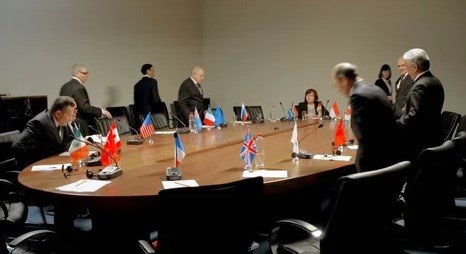French President Emmanuel Macron has thrown his support behind a Saudi Arabia hosted conference aimed at bolstering the Lebanese Armed Forces as they gear up to disarm Hezbollah. This move comes amid rising tensions in Lebanon, where the government recently approved a plan for the military to take control of all weapons by year’s end, signaling a potential shift in the country’s power dynamics.
Background on Lebanon’s Disarmament Push
Lebanon faces a critical juncture after years of conflict and political instability. The Lebanese cabinet approved an army led plan in early September 2025 to disarm Hezbollah, a powerful militia backed by Iran. This decision follows intense pressure from the United States and Israel, especially after Israeli strikes weakened Hezbollah’s military strength since 2023.
The plan calls for Hezbollah to hand over its arsenal by December 2025, in exchange for an Israeli withdrawal from southern Lebanon. Without a set timeline, experts worry about possible internal clashes. Hezbollah has rejected the idea, calling it a threat to national security.

Recent events add urgency. In August 2025, Hezbollah ministers walked out of a cabinet meeting during discussions on the plan. The Lebanese army chief even considered stepping down over the challenges involved.
Macron’s Pledge and International Support
During his speech at the United Nations General Assembly in September 2025, Macron stressed the need for Lebanon to regain control over all weapons. He said the country would benefit greatly if Hezbollah’s arms were integrated into the official armed forces.
France has no restrictions on providing advanced equipment to the Lebanese military, including air defense radars. This support ties into broader efforts to strengthen Lebanon’s security amid economic woes and ongoing regional conflicts.
Other nations are stepping in too. The United States announced 14.2 million dollars in aid specifically for the disarmament process. Gulf states, led by Saudi Arabia, are pushing for stability in Lebanon after strained relations in the past.
Details of the Upcoming Saudi Conference
The conference, set to occur before the end of 2025, will bring together countries from the Gulf, Arab world, Europe, Commonwealth nations, and the United States. A French official described it as a game changer, highlighting improved ties between Beirut and Riyadh.
Saudi Arabia had canceled a 3 billion dollar aid package to Lebanon in 2016 due to diplomatic issues with Iran. Now, relations appear to be warming, with the conference focusing on equipping the Lebanese Armed Forces for their expanded role.
The event may also address support for Lebanon’s Internal Security Forces to ease the burden on the military. This comes as the United Nations Interim Force in Lebanon mandate nears renewal, after nearly 50 years of presence in the south.
Key goals of the conference include:
- Providing military hardware and training to the Lebanese Armed Forces.
- Ensuring a smooth transition for disarmament without sparking violence.
- Boosting economic aid to stabilize Lebanon’s fragile economy.
Challenges and Potential Risks
Disarming Hezbollah is no simple task. The group holds significant political and military influence, with thousands of fighters and advanced weapons like missiles and drones. Analysts predict resistance, possibly leading to civil unrest.
Lebanon’s history of sectarian divisions adds complexity. The army, seen as a unifying force, has limited resources and capabilities compared to Hezbollah. Recent reports indicate the military is already collecting weapons from Palestinian camps as part of broader efforts.
Public sentiment is mixed. Some Lebanese welcome the move for national unity, while others fear it could empower rival factions or invite foreign interference.
| Challenge | Description | Potential Impact |
|---|---|---|
| Hezbollah Resistance | The group has vowed to keep its arms for defense against Israel. | Could lead to armed confrontations or political deadlock. |
| Resource Shortages | Lebanese army lacks advanced equipment and funding. | May delay implementation and weaken enforcement. |
| Regional Influences | Involvement from Iran, Israel, and Gulf states. | Risks escalating into broader conflicts. |
| Internal Divisions | Sectarian tensions in Lebanon. | Possible civil strife if not managed carefully. |
Global Reactions and Future Outlook
World leaders have mixed views on the plan. The United States backs it strongly, viewing Hezbollah as a terrorist organization. European nations like France emphasize state monopoly on arms for lasting peace.
On social media, discussions highlight optimism and concern. Posts from analysts note Saudi Arabia’s pressure on Lebanon, while others praise France’s role in bridging gaps.
Looking ahead, success depends on international cooperation. If the conference delivers concrete aid, it could mark a turning point for Lebanon. Failure might deepen the crisis, affecting the wider Middle East.
What do you think about this development? Share your thoughts in the comments below and spread the word to keep the conversation going.
